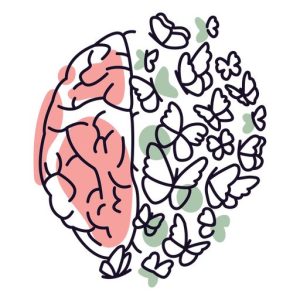
In our rapidly evolving world, the time has come for us to embrace neurodiversity—a concept that celebrates the inherent diversity of human brains and recognizes the strengths that each neurotype brings to the table. As a society, we need to cultivate a deeper understanding of neurodivergent individuals and foster an environment that accommodates their unique needs.
By doing so, we can unlock the full potential of all minds and pave the way for progress. I’d like to mention that this post is inspired by a special relationship in my life with someone who is neurodivergent. I will explore the significance of neurodiversity, the contributions of diverse brains to society, and practical steps we can take to build a more inclusive future.
Understanding Neurodiversity
- Neurodiversity encompasses a range of neurological variations, including autism, ADHD, dyslexia, and more.
- Each neurodivergent condition comes with its own strengths, such as heightened creativity, pattern recognition, attention to detail, and divergent thinking.
- Neurodivergent individuals often offer unique perspectives and problem-solving approaches that can drive innovation and propel society forward.
Accommodations in our Education System and Workplaces
Developing Accommodations in Education Systems:
- Educational institutions should provide tailored support and accommodations to meet the diverse needs of neurodivergent students.
- Strategies such as personalized learning plans, sensory-friendly environments, and flexible assessment methods can foster an inclusive educational experience.
- Creating sensory-friendly environments, such as quiet spaces or adjustable lighting, can reduce sensory overload and promote concentration and well-being.
- Implementing flexible assessment methods, such as alternative forms of evaluation or extended time for assignments, can ensure that neurodivergent students can demonstrate their knowledge and skills effectively.
- Outdated educational systems need to be reevaluated and revamped to create inclusive learning environments for all students.
Creating Accommodations in Workplaces:
- Forward-thinking companies have already started implementing neurodiverse-friendly practices, such as inclusive hiring policies and workplace adjustments.
- Organizations like Microsoft, SAP, and Hewlett Packard Enterprise have recognized the value of neurodivergent talent and established neurodiversity hiring initiatives.
- HR departments play a crucial role in creating an inclusive workplace by being aware of neurodiversity and its unique challenges and strengths. Providing training and awareness programs for HR staff can help them better understand and support neurodivergent employees. Some companies and organizations specialize in providing HR services tailored to the needs of neurodivergent individuals, recognizing their unique strengths and talents.
- More specialized HR companies can assist with job placement, workplace accommodations, and fostering a supportive environment that celebrates neurodiversity.
Equalizing Opportunities
- It is crucial to create a level playing field for both neurotypical and neurodivergent individuals.
- This involves breaking down barriers, eliminating biases, recognizing gifts and strengths, and ensuring equal access to education, employment, and opportunities for growth and advancement.
Supportive Therapies and Relationship Counseling
- A comprehensive support system is necessary to address the unique needs of neurodivergent individuals in relationships.
- We need more relationship counselors and therapists that specialize in neurodiverse relationships, offering guidance, understanding, and tailored strategies to foster thriving relationships.
- Further research on neurodiverse relationships can contribute to developing effective therapeutic approaches and providing valuable insights into the challenges and strengths of such relationships.
- It is important to note that most therapists and counselors predominantly focus on neurotypical relationships, leaving a gap in resources and support for neurodiverse relationships.
Research, Education, and Normalization
- More research and funding are needed to deepen our understanding of neurodiversity and dispel misconceptions.
- Educational initiatives should promote neurodiversity awareness, emphasizing the strengths and contributions of diverse minds in classrooms and beyond.
- Normalizing neurodiversity entails creating a culture of acceptance, appreciation, and respect for all neurotypes.
In our journey toward a more inclusive and progressive future, embracing neurodiversity is paramount. By recognizing and valuing the strengths of diverse brains, accommodating their unique needs in education and workplaces, equalizing opportunities, and investing in research and education, we can create a society that celebrates the beauty of both neurotypical and neurodivergent minds. I look forward toward embarking on this transformative path together and unlocking the extraordinary potential within us all.
My perspective is inspired by a special relationship in my life with someone who is neurodivergent. It has deepened my appreciation for the power of diverse minds and the importance of embracing neurodiversity.
Really enjoyed the article! As somebody who is challenged by ADHD, I feel that it is important for people to understand that individuals who are challenged, are not mentally handicapped or deficit. But that they just see and learn in different ways. Thank you for the advocacy!
Appreciate it for this post, I am a big big fan of this website would like to continue updated.
Clearly written and well-sourced.
Your blog always inspires me.
Appreciate the content you put out!
Thank you for writing this.